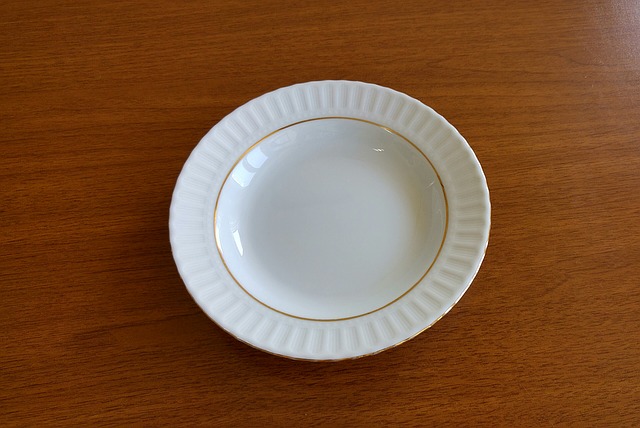Intermittent fasting- is the term known to you? yes/no? Okay, first tell me, do you often feel depressed as no one listens to you including your blood sugar, blood pressure, thyroid, knee pain or even weight? If yes, then intermittent fasting can be the solution. Days have gone when we used to write dietary advice like – “fasting and feasting are to be avoided”. Today science has proved that fasting can be the solution most of the health issues including weight loss.
What is intermittent fasting?
Intermittent fasting is the concept where eating and fasting go hand in hand in a cyclic manner. You need to restrict your eating within a particular time frame and the rest of the time you go on fasting. For example- Suppose you have finished your dinner tonight at 9pm, if you are planning to keep 12 hrs fast, you again start eating tomorrow at 9 am. Isn’t it simple?

Is there any science behind intermittent fasting?
Have you heard of Yoshinori Ohsumi, the Japanese cell biologist? Well, he won the noble prize in physiology in the year 2016 for his discovery and explaining mechanism on autophagy. Now you must be wondering what is autophagy and how does it connected to intermittent fasting. Wait, have patience.
Autophagy is the natural mechanism takes place within the cell. Autophagy disassembles all the unnecessary, dysfunctional components of your body and recycles the cellular components. In simpler term this process takes place within our cell by which body gathers all the waste and then recycle them to make fresh raw materials for building a new cell. Amazing right? It is the inbuilt detox mechanism of our body. You will be thrilled to know that intermittent fasting triggers the process autophagy which in turn gives us numerous health benefits. So never underestimate the power of intermittent fasting. Almost a filmy line, huh.
What’s wrong with eating?
Have you ever realized that we eat too much these days? There was a time when 3 meals a day was enough. Then the 4th meal was introduced as an evening snack shifting the dinner late. Now most of us have 5 to 6 times a day in the name of metabolic booster etc.
Is there a problem? Well, 5 meals a day is fine only when it includes 3 hot cooked meals and 2 times natural/raw food. But we are smart, our “small frequent meals” are mostly factory made products -biscuits/cake/ instant noodles/ instant oats/ protein bars etc. Many of us get disturbed sleep and feel hungry at night. So we eat even at 1 am. Then, after 5-6 hrs of sleep, we start another eating cycle mostly with cornflakes/ muesli/ oats etc.
This is a common eating routine for most of us. The problems with such routine are 1. the quality of food 2. the timing where we don’t give enough time to our body to trigger autophagy. Intermittent fasting helps you to ensure giving enough time to start autophagy.
What are the benefits of intermittent fasting?
Weight loss and fat loss: Intermittent fasting reduces the eating window, you automatically eat less and consume less calorie. Now since you eat less, you manage to achieve lower and steady insulin level and increased growth hormone which in turn allow increased secretion of norepinephrine (a fat burning hormone). This new hormonal situation, boost your metabolic rate. The study suggests that intermittent fasting can be a powerful weight loss tool for many of us which also helps to reduce your belly fat.
Helps to reverse type 2 diabetes: Intermittent fasting helps to lower blood sugar level and may give you steady insulin support by lowering insulin resistance.
Improve heart health– Intermittent fasting helps to lower blood triglyceride level and the bad cholesterol “LDL” level.
Reduce inflammation –Since intermittent fasting helps to reduce inflammation ( a major cause for autoimmune and lifestyle diseases), patients often report of relieving their inflammatory pain.
Beside these there are multiple studies which connect intermittent fasting with prevention of cancer, improving brain health and preventing Alzheimer’s disease.
How to do intermittent fasting? Do I need to do it every day?
Small frequent meal or intermittent fasting- this must be the confusion for you at this moment. Relax. There are various types of advanced level of intermittent fasting. But for beginners level 16: 8 method is most popular. It means, you eat during 8 hrs and keep your fast for 16 hours. That’s it. Plan your fasting cycle so that it fits into your daily routine.
Start doing it as 12: 12 window where you can keep fast for 12 hrs and you can eat in the next 12 hrs. Then slowly try to increase the fasting time up to 16 hrs, lowering the eating window to 8 hrs. You may start doing this once a week and then once you are adjusted to it you can do it 2-3 consecutive days a week. Eventually, if you wish it can be a part of your lifestyle.
Just because it helps in weight loss, don’t try to follow it every day for 16hrs. Go slow and relax. Give your body enough time to get adjusted. Anything beyond 12 is okay. There may be days when you may have hunger pangs even before 12 hrs. Don’t stress, break your fast and eat. Try the next day.
How do I break my fast?
Drink water and then lemon water (without honey). After that have some fruits of your choice. You may have some dry fruits also. Wait for 20 -30 minutes and have a wholesome hot cooked balanced meal.
Can I eat something during fasting?
There is a concept of dry fast where people do not even drink water during fasting. The idea of keeping fast is to control craving, eating and giving your body the much-needed break. So ideally no food is best during the fasting cycle. But if dry fast seems to be too much for you, you may drink water. Tea/coffee is also fine but without sugar and preferably without milk. That’s it.
After a long fast can I exercise the next morning?
You will be fine. You may feel little dizzy at the beginning but later your body will get adjusted. Just give some time. Magic does not always happen overnight. No pre-workout meal is required. Finish your exercise and then break your fast.
What to eat during the eating window? Can I eat anything?
Keeping fast for 12 to 16 hrs, does not allow you eating any thing in any amount specifically junk. That is the worst thing to do. Intermittent fasting gives you an eating window between 12 to 8 hrs. Use the eating period with quality food. Eat home cooked meals, add fresh, local and seasonal fruits and vegetables, seeds, nuts, dry fruits, milk, curd, healthy snacks, healthy drinks in your diet. If you are non-vegetarian enjoy homemade preparation with fish, egg, chicken or meat. Drink lot of water as well. After a long fast when your body is screaming for nutrition, eat something meaningful and healthy. So be selective while choosing food.
Do not stuff yourself with processed junk or even do not start binging even on homemade food. Quality, quantity, and frequency are always the keys to any sustainable diet plan.
What about my metabolism? Isn’t it going to drop and make me fat?
Short term fasting actually helps to boost your metabolism. So don’t panic. You will be fine once you get adjusted with the fasting routine.

Who should not try intermittent fasting rather focus on the small frequent healthy eating?
-
Pregnant women
-
Lactating women
-
Boys and girls below 18 years
-
Underweight
-
Those who have an eating disorder – anorexia/ bulimia etc.
Who should try intermittent fasting under medical supervision?
If you have following health conditions you must consult your doctor before trying intermittent fasting-
-
problem with blood sugar regulation
-
low blood pressure
-
on any medication
I must mention that there are many patients even after having these conditions are following intermittent fasting successfully. So don’t make your condition an excuse. Speak to your doctor and then start planning.
Intermittent fasting: Bottom line
Hunger is the only side effect of intermittent fasting. Nothing else. Fasting for a particular period is not starvation. So you will not die. If you think logically fasting is not new to us either. There was an age where people used to eat once or twice a day due to the unavailability of food. Your grandparents or parents may have done fast for some religious reason. So don’t stress out. You may able to do it for only 10 hrs on your first try. That’s fine. Don’t be in hurry. Take your time. Do not start feasting during the eating window. Eat healthy quality food. Intermittent fasting is actually the zero investment tool which can help you to turn your dream into reality. So let’s get started and experience the difference. All the best.
Follow us on Facebook https://m.facebook.com/wellnessmunch/?ref=bookmarks
Follow us on Instagram https://instagram.com/soma.b.chakrabarty?utm_source=ig_profile_share&igshid=1tnlrvuxcv9be








2 Comments